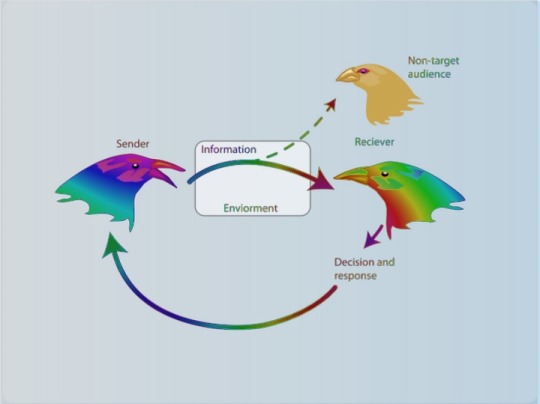Don't wanna be here? Send us removal request.
Text
## Why Japan's GDP is Declining: A Closer Look 🌏📉
Hey Tumblr fam! 🌟 Today, let’s dive into an important topic that’s been making waves in the economic world: Japan’s declining GDP. It’s a complex issue, but I’ll break it down for you in a way that’s easy to understand. Let’s get started!
### The Current Situation 📰
As of late 2023, Japan's economy has been facing some serious challenges. In fact, the GDP shrank by an annualized 0.4% in the last quarter! 😱 This decline is primarily attributed to **weak domestic consumption**. With rising inflation outpacing wage growth, many households are feeling the pinch and cutting back on spending.
### Key Factors Contributing to the Decline 🔍
1. **Weak Domestic Consumption**:
- Consumers are tightening their belts due to increased living costs. When people spend less, businesses struggle, leading to a downward spiral in economic activity.
2. **Inflation vs. Wages**:
- Prices are rising faster than wages, which means that even if people want to spend, they have less disposable income to do so. This has created a significant gap between what people earn and what they need to spend.
3. **The Weak Yen**:
- The Japanese yen has weakened significantly, making imports more expensive. This has not only inflated costs for consumers but also affected businesses that rely on imported goods.
4. **Global Economic Factors**:
- Japan's economy is also feeling the effects of a slowing Chinese economy and ongoing geopolitical tensions. These external pressures can dampen trade and investment opportunities.
### What Does This Mean for the Future? 🔮
The combination of these factors paints a challenging picture for Japan's economic recovery. If domestic consumption doesn’t pick up soon, we could see continued stagnation or even further declines in GDP.
### Final Thoughts 💭
Japan has faced economic challenges before, but this current situation highlights the importance of addressing domestic consumption and inflation issues head-on. It’s crucial for policymakers to create strategies that boost consumer confidence and spending while managing inflation effectively.
Let’s keep our fingers crossed for Japan as they navigate these turbulent waters! 🌊✨ What are your thoughts on this situation? Let me know in the comments! 👇💬
#Japan #Economy #GDPDecline #Inflation #ConsumerSpending #EconomicChallenges #StayInformed
0 notes
Text

Challenges in Decoding Animal Communication
1. The Cocktail Party Problem
One of the primary challenges in studying animal communication is the "cocktail party problem." This phenomenon refers to the difficulty of isolating a single voice or signal from a cacophony of background noise. In natural settings, animals often communicate in environments filled with other sounds, including those from their own species and different species, as well as environmental noise.
Technical Solutions: Researchers employ advanced audio processing techniques and machine learning algorithms to filter out background noise and focus on specific vocalizations. However, these methods require extensive data collection and training to be effective.
2. Diversity of Communication Methods
Animal communication is incredibly diverse, encompassing not just vocal sounds but also body language, chemical signals, and visual displays. Each species has its own unique communication system, which can vary widely even within a single species.
Interdisciplinary Expertise: Understanding these varied forms of communication necessitates collaboration across multiple disciplines, including bioacoustics, ethology (the study of animal behavior), linguistics, and neuroscience. This complexity can make research more challenging and resource-intensive.
3. Contextual Variability
Animal communication often depends on context, including social dynamics, environmental conditions, and individual relationships. For example, the same vocalization might have different meanings depending on the situation in which it is used.
Need for Comprehensive Data: To accurately interpret these signals, researchers must collect extensive data across different contexts and situations, which can be logistically challenging.
Ethical Concerns
1. Animal Consent and Autonomy
As researchers begin to decode animal communication, questions arise about the concept of consent. Animals cannot verbally consent to being studied or recorded, leading to ethical dilemmas about their autonomy.
Informed Consent Analogy: While humans can provide informed consent for participation in research, animals lack this capability. Researchers must consider whether their work respects the autonomy of the animals involved.
2. Potential for Misuse
With the ability to understand animal communication comes the risk of misuse. For example, decoded signals could be exploited for profit or manipulated for entertainment purposes.
Exploitation Risks: There is concern that understanding animal behaviors could lead to unethical practices in industries such as wildlife tourism or entertainment, where animals might be coerced into performing behaviors that are not natural to them.
3. Impact on Animal Welfare
Decoding animal communication could inadvertently lead to changes in how animals are treated in captivity or in the wild. For instance, if certain signals indicate distress or discomfort, there may be pressure to alter their environments or management practices.
Responsibility to Act: Researchers have a moral obligation to act on their findings responsibly. If they discover that certain conditions cause distress in animals, they must advocate for changes that enhance animal welfare.
4. Ecosystem Balance
Understanding animal communication can influence conservation strategies and human interactions with wildlife. However, there is a risk that this knowledge could disrupt natural behaviors or ecosystems if not handled carefully.
Conservation Ethics: Conservationists must balance human interests with ecological integrity. Misinterpretation of animal signals could lead to misguided conservation efforts that do more harm than good.
Conclusion
Decoding animal communication is an exciting frontier in science with immense potential benefits for conservation and our understanding of non-human intelligences. However, it comes with significant challenges and ethical considerations that researchers must navigate thoughtfully. As we advance in this field, it’s crucial to prioritize animal welfare and ecological integrity while fostering a respectful relationship between humans and other species.
1 note
·
View note